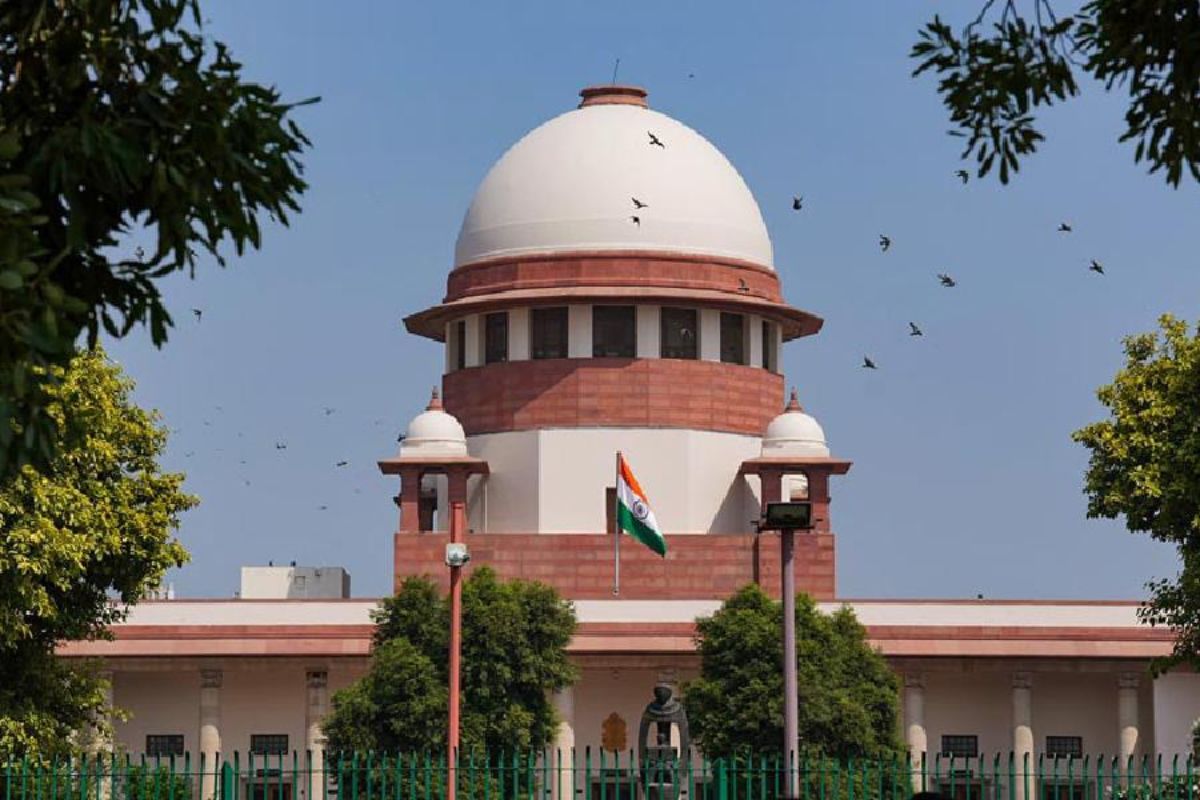Pegasus snooping row: SC adjourns hearing for April 22
The Supreme Court on Friday posted for April 22, 2025 the hearing on a batch of petitions seeking inquiry into the allegations that the government is using Israeli software Pegasus for snooping.
The apex court issued notice on the plea of Delhi government challenging his appointment and posted the matter for hearing on July 11.

SC quashes proceedings against Karnataka Dy CM Shivakumar in PMLA case
The Supreme Court on Tuesday ordered deferring of the administering of oath to former Allahabad High Court judge, Justice Umesh Kumar in pursuance to his appointment as the chairperson of Delhi Electricity Regulatory Commission (DERC) till July 11.
Deferring the administering of oath to Justice Umesh Kumar, a bench of Chief Justice D Y Chandrachud and Justice Pamidighantam Sri Narasimha issued notice on the plea of Delhi government challenging his appointment and posted the matter for hearing on July 11.
Advertisement
The bench in its order said, “It is understood that administration of oath in pursuance of the notification … to the former judge of the Allahabad High Court judge shall stand deferred.”
Advertisement
The Delhi government has also challenged the Section 45D of the Government of National Capital Territory of Delhi (Amendment) Ordinance, 2023, that has been taken recourse to by the Central government for appointing Justice Umesh Kumar as DERC Chairman.
The bench noted that the petition raises a point of law regarding the validity of Section 45D of the GNCTD Act, as amended by the latest ordinance promulgated by the President Droupadi Murmu, which gives overriding powers to the Lieutenant Governor over the elected government in the matter of appointments to different authorities functioning under Delhi government.
Referring to Section 45D of the Ordinance, senior advocate Abhishek Manu Singhvi appearing for Delhi government told the bench that the provision denudes Delhi government of the power to make appointments to 20 bodies which function under it and have a direct bearing on the people of the national capital.
Section 45D of the ordinance says, “Notwithstanding anything contained in any other law for the time being in force, any authority, board, commission or any statutory body, by whatever name it may be called, or any office bearer or member thereof, constituted or appointed by or under any law for the time being in force, in and for the National Capital Territory of Delhi, shall be constituted or appointed or nominated by the President.”
Telling the court that Section 45D flies in the face of the Article 239AA of the constitution that provides for special provision under which Delhi was granted statehood, The bench was told that the appointments are made by the Centre but the political accountability rests with the Delhi government.
Singhvi said that the appointment of Justice Umesh Kumar was an attempt to do away 200 units of free electricity that Delhi government supplies to the poor residents of Delhi.
Describing it as a most popular scheme, Singhvi said that the Delhi government pays for the DERC and is accountable to the electorate, and wondered if it won’t get the right to choose the regulatory body’s Chairman.
“As a political executive, I give power of 200 units to the poorest of the poor in Delhi. It’s the most popular scheme in Delhi. Now they want to appoint someone and stop that,” Singhvi said.
However, Solicitor General Tushar Mehta said that the argument of attempts to scuttle the supply of free electricity was aimed at media and took the bench through various communications sent by Delhi government’s Power Minister Atishi to Justice Umesh Kumar seeking to know the day when it was convenient for him to take oath.
The Solicitor General said that the challenge to Section 45D of the ordinance was a test case in the run up to the challenge to the Ordinance in its entirety.
Earlier, Chief Minister Arvind Kejriwal had approved the former judge of Delhi High Court Justice Rajeev Shrivastava as DERC chairman, and the file was put up by former deputy chief minister Manish Sisodia, who also held the power portfolio, to Lieutenant Governor.
However, the file was returned by Lieutenant Governor Vinai Saxena with a recommendation to consult the Delhi High Court Chief Justice for the appointment.
Later, the Delhi government approached the top court on April 12, blaming the Lieutenant Governor for delaying the appointment.
On May 19, the top court observed that the Lieutenant Governor is not supposed to act on his own discretion on such appointments, and directed the government to appoint the DERC chairperson within two weeks.
However, Justice Shrivastava later ‘expressed his inability to accept the appointment’ due to ‘family commitments and requirements’.
The top court bench had earlier said that while appointing a sitting or a retired judge to the post of a state electricity regulatory commission, the Chief Justice of the High Court, to which the judge concerned belonged to, has to be consulted.
The top court while referring to a 2018 constitution bench judgement and its judgement on the row between the Centre and the Delhi government on the control over services, the bench had said it has been made clear that the “LG has to act on the aid and advice of the council of ministers.”
Delhi government had filed a plea in the top court alleging inaction by Lieutenant Governor in appointing the Chairperson of DERC.
The DERC has been functioning without a chairperson for the last four months after previous Chairperson Justice Shabihul Hasnain demitted office on January 9, 2023 upon attaining the age of 65 years.
Advertisement